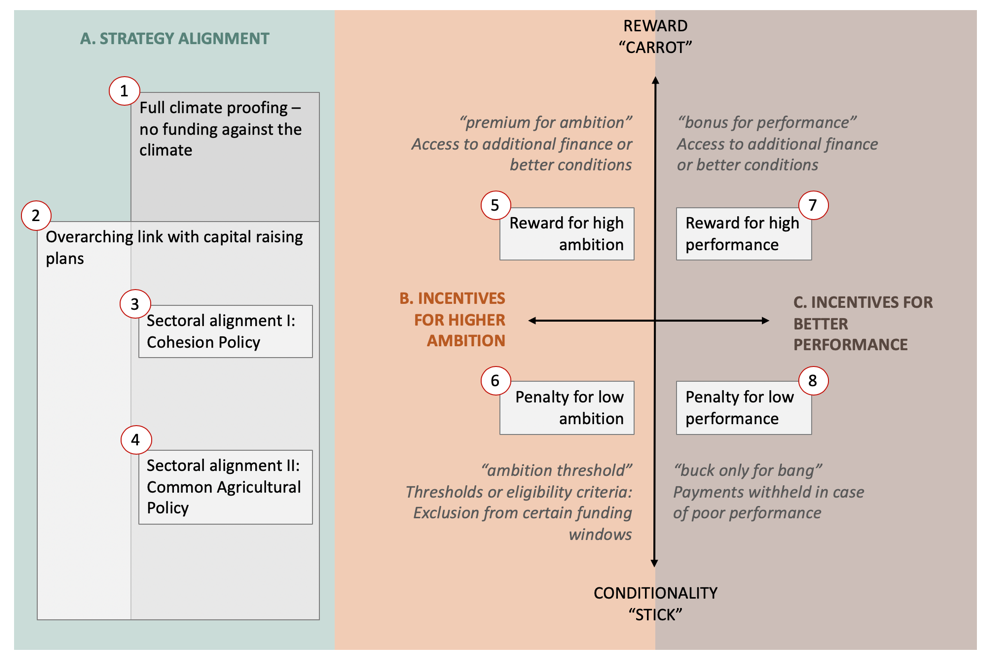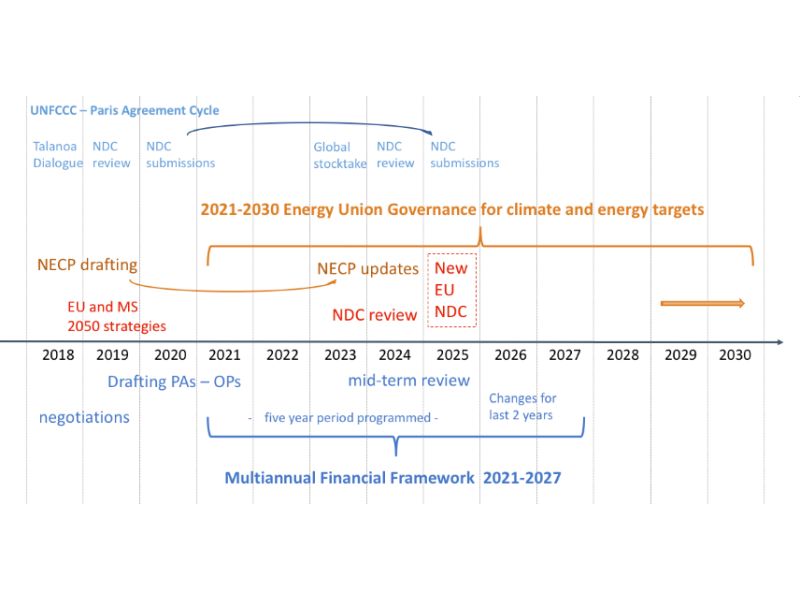Analysis of Linkages between the EU Budget and Energy and Climate Targets for 2030
- Project
- Duration
-
-
Within the Paris Agreement, the European Union (EU) committed to reduce the greenhouse gas emissions produced in the EU by 20% between 1990 and 2020, and by at least 40% between 1990 and 2030, with the aim of keeping the global temperature rise well below 2°C. In order to achieve this, Europe has to invest approximately 179 billion € additionally per year. The post-2020 EU budget could contribute to this sum and help to engage private investors. In this regard, the Ecologic Institute analyzes the EU Commission’s proposals on the Multiannual Financial Framework (MFF) for 2021-2027.
At the beginning of May 2018, the European Commission submitted a proposal for the amount and scope of expenses for the EU budget between 2021 and 2027. The financing of climate protection measures should, according to the EU Commission, be integrated into all EU programs. Further, the overall budget for climate action has increased: from 20% (approx. 206 billion €) in 2014-2020, to 25% (approx. 320 billion €) in the period of 2021-2027.
The EU funding strategy is linked with many parallel processes, including the new Governance Regulation on the Energy Union, the Integrated National Energy and Climate Plans (NECPs) and the national Long-term Climate and Energy Strategies (LTS). This situation offers a unique opportunity to promote the implementation of EU climate and energy policies at all levels.
The project, therefore, enhances a platform for the exchange of various stakeholders to identify links between NECPs and the MFF. Within specific workshops – with Ecologic Institute's experts, project partners and other selected specialists – actors from different thematic areas are brought together. The goal is to identify connections and bridges between the two processes and to find a recommendation for possible changes.
As part of the project, the study "Bringing Paris into the Future EU Budget" was prepared at the beginning of July 2018, which provides linkages between the EU budget process and the European energy policy, in particular the NECPs. In mid-October 2018, eight concrete options were scrutinized in a second paper and analyzed for their effectiveness and feasibility. Both studies were presented and discussed in Brussels in workshops at the European Policy Center (EPC) - with commentators from the European Parliament, the Commission, Member States, NGOs and the European Court of Auditors.





